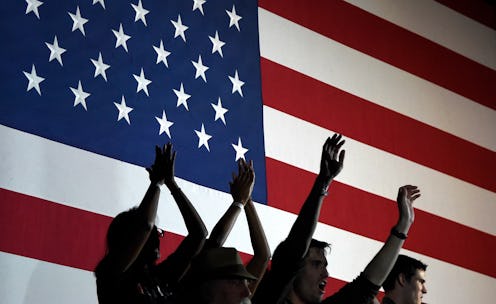News
How Many Delegates Vote For The Nominees?
The presidential primary races are ongoing, and the delegate counts are starting take on a hardened state ― Hillary Clinton is leading her primary rival Bernie Sanders by a wide margin, and Donald Trump is continuing his one-man assault on the Republican establishment. But maybe you're new to this nominating race game, and some of the finer points are lost on you ― for instance, do you know how many delegates vote in the conventions?
It's kind of an important question, especially if it's a primary or caucus night and you're watching the results roll in. It's one thing to know how many delegates each candidate has, and it's something else altogether to know what exactly that means ― how many of them, in other words, does it actually take to secure a spot on the 2016 presidential ticket?
So, how many delegates are in play in each of the major conventions? How many people will be casting votes to pick their party's nominee? Here are the numbers, as detailed by FiveThirtyEight's excellent Super Tuesday election guide: there will be 2,472 delegates at the Republican National Convention, to be held in Cleveland, Ohio, and 4,051 delegates at the Democratic National Convention in Philadelphia.
In both cases, the nomination is decided by winning a majority of those thousands of delegates. Which is why the proportional system of awarding delegates, which has been in force in the early primary states, has been such a life-raft for the familiar losers on the Republican side ― mainly Marco Rubio and Ted Cruz, although Ohio Gov. John Kasich also mounted a more competitive than expected on Super Tuesday.
And make no mistake, it's a huge deal whether any of the candidates (on the Republican side in particular) are able to pass that 50 percent mark as far as the delegate vote goes. Absent that clear majority, you could be looking at a brokered convention on either side ― although once again, the way things are shaping up, that's probably only a feasible possibility for the Republicans, who beyond having a chaotic, split field currently have a clear frontrunner who's despised by the party apparatus.
If you're wondering how it all shakes out in the end, you'll still have a few months more to follow along. The 2016 Republican National Convention is scheduled for July 18-22, and the 2016 Democratic National Convention is scheduled for July 25-28.
